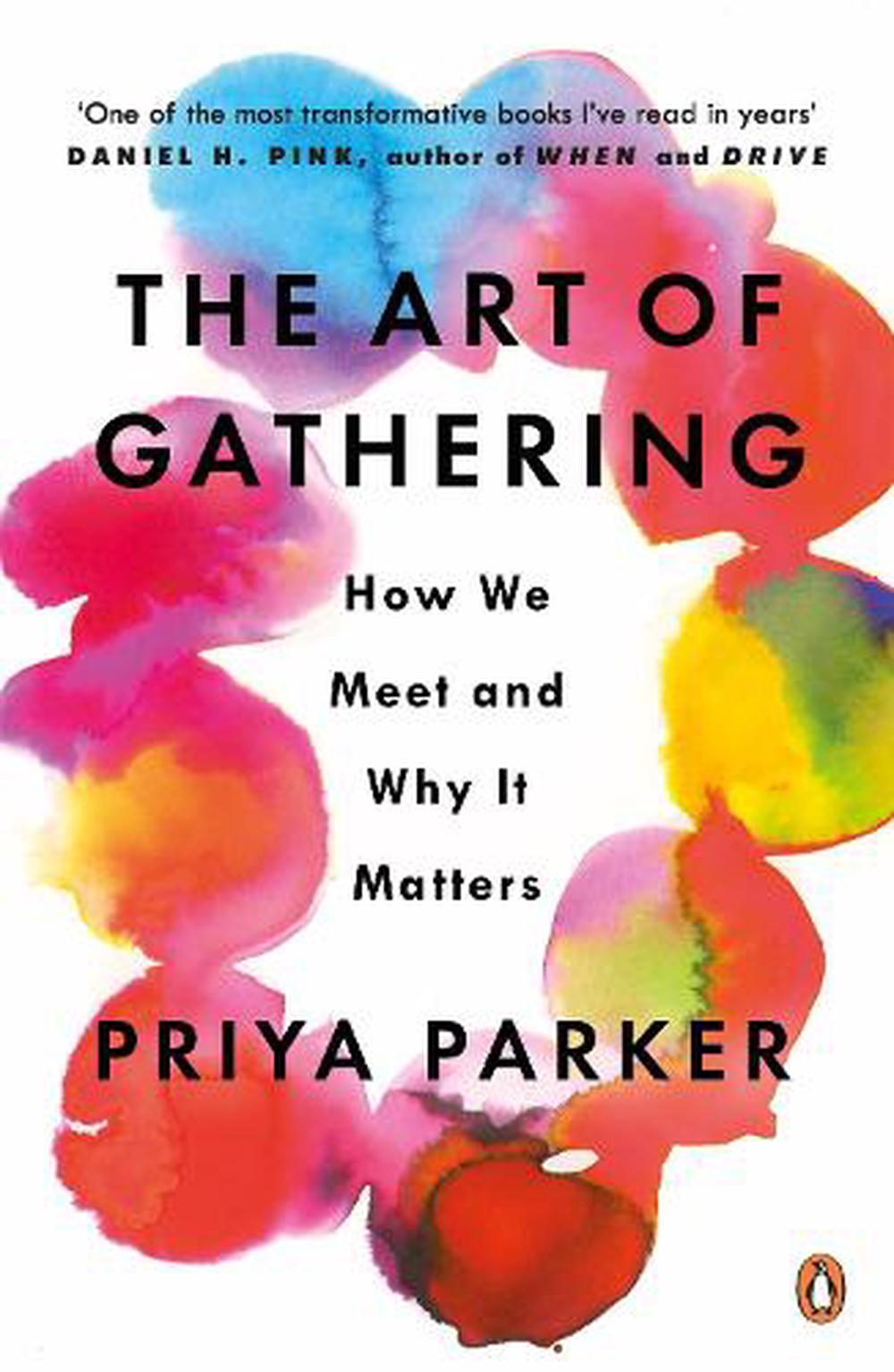The Art of Gathering
up:: Books

[!even-columns]
About
- Type:nonfiction
- [Author:: Priya Parker]
- [pages:: 320]
- [ddc:: 302.1]
- [Year published:: 2018]
Reading
- [status:: read]
- [rating:: 4.75]
- [added:: 2023-01-29]
- [started:: 2023-06-09]
- [read:: 2023-06-26]
Links
🛒 [kindle:: https://www.amazon.com/gp/aw/d/B079C9WN5W/ref=tmm_kin_swatch_0?ie=UTF8&qid=1674948138&sr=8-1] 🏫 [library:: ] [thumbnail:: “https://images.thenile.io/r1000/9780241973844.jpg”] [id:: jyJJDwAAQBAJ]
Notes
1: Decide why you’re really gathering
- Choose a vivid purpose
- Routine is the enemy of purposeful gatherings
- A category is not a purpose: labeling birthday parties’ purpose as celebrating birthdays is too broad. What is the purpose this year?
- How is my gathering unique? How is this different from other gatherings of the same kind?
- Ask the Five Whys.
- Once you found a purpose, there are two adversaries: Multitasking (too many purposes) and Modesty (Who am I to…)
- Multitasking: hone in on one purpose
- Modesty: a clear vision is actually honouring to your guests
2: Close Doors
2a: Who? The purpose-driven list
- “If everyone is family, no one is.” - Barack Obama‘s aunt
- “If everyone is invited, no one is invited–in the sense of being truly held by the group.”
- Who to exclude generously?
- Who not only fits but helps fulfill the gathering’s purpose?
- Who threatens the purpose?
- Who, despite being irrelevant to the purpose, do you feel obliged to invite?
- The people in the third categories still detract. Considerate guests will pay attention and time to them that could be spent by focusing on one another
- group sizes
- 6: small, intimate
- 12-15: beyond this, startups have people problems. Allows for diversity of viewpoints but is enough for a single moderator to handle
- 30: it starts to be a party
- 150: Dunbar’s number
2b: Where? A venue is a nudge
- “The environment should serve the purpose”
- Embodiment: for a place to embody an idea (chateau principle)
- Displacement: taking people out of their usual context (presidents sitting on Platon’s crate, who then took portraits of them)
- Perimeter: contain the space, don’t let the energy leak out
3: Don’t be a chill host
- exhibit generous authority
4: Create a temporary alternative world
- explicit rules can help break unspoken rules (etiquette)
- They can also help create a temporary Alternative World
5: Never started a funeral with logistics
Priming
- the gathering starts the moment people become aware of it
- There is a pregame to the gathering
- 90% of what makes a gathering successful is put in place beforehand
- Ask guests to do something instead of bring something
- embed two elements
- Connect with and remember their own sense of purpose as it relates to the business
- Something that gets them to share honestly about the nature of challenge they are trying to address
- a meeting is a social contract: what does the host expect from the guests and what does the host offer
Ushering
- be intentional about the time between coming in and the event starting
Beginning
- people disproportionally remember the start, climax and end
- Don’t start with logistics
- Honour-awe your guests (“members of an exclusive club that they have no business belonging to”)
- Fusing: connect people to one another
6: Keep your best self out of my gathering
- “educated her how change happens: slowly and with people in privilege as protectors”
- Have people share stories rather than ideas
7: Accept that there is an end
- introspection: reflect on this gathering and how I changed, conclude the group dynamic
- outside: prepare guests for re-entry
- Do not end on logistics
- Tie the end back to the purpose